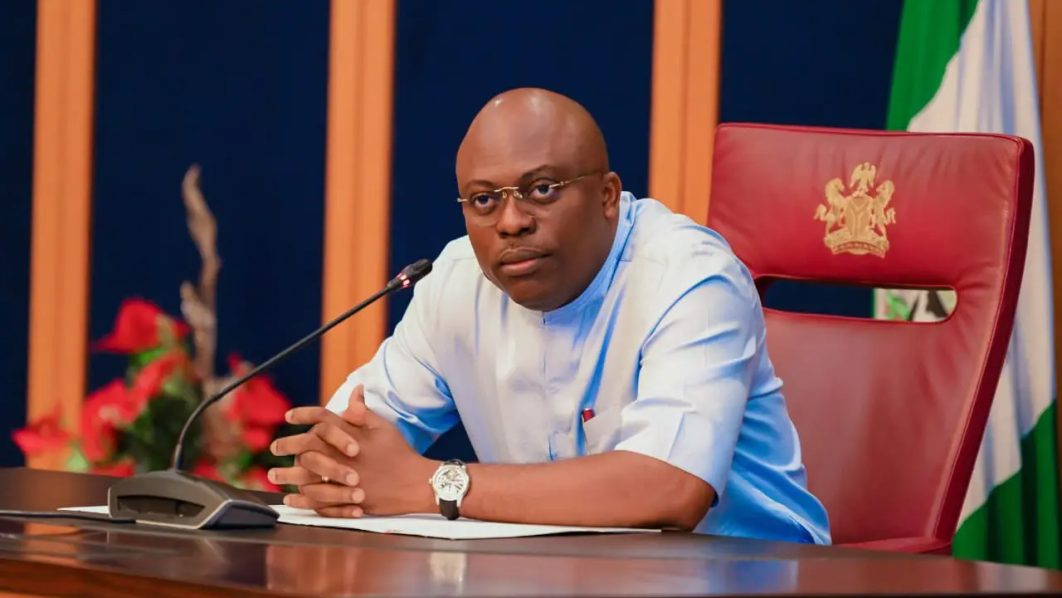
By Nina Anyianuka
The ongoing political turmoil in Rivers State between Nyesom Wike, the former governor and current Minister of the FCT, and Siminalayi Fubara, the incumbent governor, has escalated into a high-stakes conflict with significant national and international repercussions.
At the heart of this feud lies not just political ambition but also tribal divisions, administrative breakdowns, and significant Public Relations (PR) missteps that have turned the state into a ticking time bomb.
The conflict between Wike and Fubara began in 2024 as a power struggle over control of the state’s political machinery. After handpicking Fubara as his successor, Wike expected loyalty and deference. However, as Fubara sought to assert his independence, tensions flared.
Recently, the Rivers State House of Assembly, dominated by Wike loyalists, initiated impeachment proceedings against Fubara, a move widely seen as orchestrated by Wike to maintain dominance over the state. The attempted impeachment deepened the rift, leading to chaotic scenes, unrest, and a further breakdown in governance.
Against this backdrop, Wike visited Rivers State on March 15 and 16, 2025, using the opportunity to assert his influence and undermine Fubara’s authority. In a speech that has since sparked national outrage, Wike dismissed the Ijaw people as a minority tribe, despite their position as Nigeria’s fourth-largest ethnic group. His remarks were not only inflammatory but also strategically damaging, alienating a critical voter base in a region with a history of resistance against political marginalization. The following day, in a church service, he escalated his rhetoric, branding the Ijaws as criminals, pipeline vandals, and economic saboteurs.
Considering the Niger Delta’s history of militancy fueled by perceived oppression, Wike’s remarks were dangerously irresponsible.
On the night of March 18, 2025, President Bola Ahmed Tinubu unconstitutionally suspended Fubara from office and declared a state of emergency in Rivers State. The move was widely condemned as a blatant violation of Nigeria’s constitutional framework, as no due process was followed, and no legislative approval was secured before a military sole administrator was installed to govern the state.
The shocking developments raised concerns over executive overreach and the erosion of democratic governance in Nigeria, especially as The National Assembly endorsed Tinubu’s unconstitutional move, staging a vote over 24 hours after the suspension and emergency declaration had already taken effect. This rubber-stamping of executive excesses reinforced the perception of an eroding democratic system, where legislative bodies function merely as an extension of presidential authority rather than an independent check on power.
As reports of major pipeline explosions in Rivers State continue to surface, many speculate that the vandalization is linked to the ongoing political crisis and Wike’s incendiary remarks. The timing raises critical questions: Are the explosions unfortunate and coincidental accidents, an act of sabotage, or politically motivated attacks?
While investigations are ongoing, the incident underscores how regional strife can quickly translate into security and economic crises. We should be deeply concerned about the message this situation is sending.
The national and international optics of this turmoil are disastrous. Rivers State, one of Nigeria’s most significant oil-producing regions, is once again making headlines for conflict rather than economic progress. Investors and international stakeholders are watching closely, wary of the instability’s potential impact on oil production and regional security. The Trump administration, the European Union, and major oil firms operating in Nigeria are reportedly monitoring the situation. We should be concerned that the erosion of democratic norms and rising instability could undermine Nigeria’s global standing as an investment destination.
Now, the PR and communication missteps from all involved parties are glaring. Wike’s reckless rhetoric has exacerbated tribal divisions and reinforced negative stereotypes, while Fubara’s administration has failed to effectively counter Wike’s narrative or project a strong, strategic response. Silence and reactive communication do not inspire confidence.
Meanwhile, the federal government’s handling of the crisis—marked by unconstitutional overreach and financial strangulation—has worsened public perception both domestically and internationally. The Tinubu administration’s actions are fueling concerns that Nigeria is sliding into authoritarian governance, where political crises are resolved through force rather than dialogue.
To salvage the situation, Fubara’s team must immediately deploy a strategic PR and crisis communication approach. First, his administration must reclaim control of the narrative by engaging with international media, human rights organizations, and global diplomatic channels to highlight the constitutional violations against his government. Second, he must galvanize public support by maintaining consistent and clear messaging, reinforcing his legitimacy as the duly elected governor of Rivers State. Third, he must mobilize grassroots engagement with Ijaw and Niger Delta stakeholders, ensuring that the ethnic divisions Wike has tried to exploit do not fracture his base. Lastly, his administration must counteract state-controlled media disinformation by leveraging digital platforms, investigative journalism, and international advocacy groups.
Beyond the political implications, the environmental consequences of the crisis cannot be ignored. The pipeline explosion is a stark reminder of how political instability can lead to economic sabotage, ecological destruction, and security threats akin to the peak of the Niger Delta militancy. If unrest continues, oil facilities may become targets for attacks, leading to economic losses, increased militancy, and geopolitical consequences for Nigeria’s oil exports. The spillover effects on livelihoods, climate commitments, and global energy markets cannot be overstated.
The Rivers State crisis is a political, economic, and environmental minefield. Wike’s unchecked rhetoric, Tinubu’s unconstitutional intervention, Fubara’s weak communications, and the National Assembly’s abdication of its constitutional duty are all fueling instability in ways that could have long-term national repercussions.
A well-managed PR and crisis communication strategy must be deployed immediately to de-escalate tensions, counter disinformation, and reassure stakeholders. If this crisis is not handled with precision and urgency, Rivers State could once again become the epicenter of a larger, more destructive battle for power and resources—one that history has already warned us about.

Leave a Comment